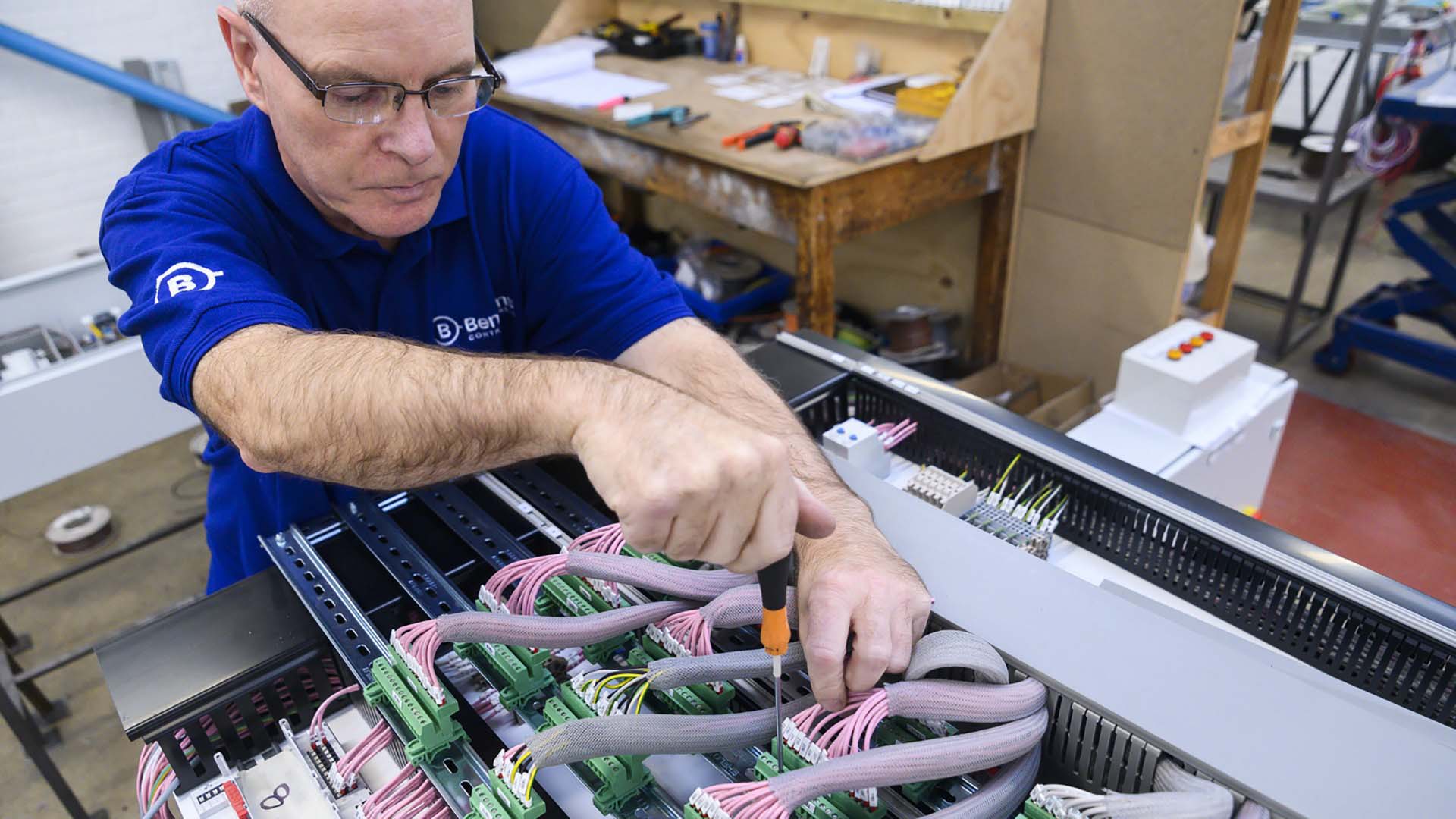
Supporting SME success and resilience
Leeds Beckett University is an anchor institution in the Leeds City Region, making a significant contribution to our regional economy, with a key role in driving local economic growth and supporting SMEs in the region to prosper and grow.
As we react, readjust and recover from the changes the COVID-19 pandemic has brought to the business climate, this support has never been more important.
We spoke to Kim Yallop – SME Engagement Manager – and Natalie Allen – Business Development Manager – at Leeds Beckett, to find out how SMEs and start-ups in the region can benefit from teaming up with the University.
Kim Yallop joined Leeds Beckett in August 2020. With 15 years’ experience in a range of business engagement roles – including, most recently, Growth Manager for Wakefield and Kirklees Councils – Kim understands what businesses in our region want and need – and what help is out there.
She is excited about sharing the unique opportunities to SMEs available through Leeds Beckett and working with businesses to deliver bespoke programmes of support.
Kim explained: “A lot of businesses in our region don’t know what support is available to them. Through my previous role as Growth Manager, I can help them; and I’m looking forward to engaging businesses with the University and being hands-on in delivering programmes of support that are really specific to them and will really deliver what the business needs.
“I began working with Jo Griffiths – post-award team manager at Leeds Beckett – when I worked at Wakefield Council. I quickly realised that Leeds Beckett has a very different strategy and vision to other universities – we are one of the few to have a dedicated team, and such a large offering, so wholly focused on supporting SMEs and helping them to grow. Everyone is extremely committed to the success of the businesses we work with – and truly supportive.”
Kim recognises that the COVID-19 pandemic is having a huge impact on our region’s SMEs.
She explained: “I have noticed that many businesses have been taking the opportunity to evaluate their strategy and we have seen a lot of innovation – companies diversifying where their industry has been put on hold; new businesses starting up as a result of redundancy; managers looking at their company’s environmental impact and better ways of working remotely, etc.
“There are lots of ways that the University can work with businesses to support them through this time – helping them to recover from the pandemic and build their resilience in the future.
“We can also help tackle the skills gap many businesses are facing. We can link businesses into the fresh talent at Leeds Beckett and our academic expertise – and show them that they are not on their own.”
Working alongside Kim is Natalie Allen – Business Development Manager at Leeds Beckett. Natalie joined Leeds Beckett seven years ago and creates links between businesses and the expertise at Leeds Business School. This includes degree apprenticeships, student projects, and academic consultancy.
Natalie explained: “I am driven by the genuine impact that our work has on individual businesses and the regional economy. Projects such as our Knowledge Transfer Partnerships (KTP) – government-funded innovation projects where a skilled graduate and team of academic experts work with a business to achieve a specific goal – really set businesses up to be sustainable, to grow, and to get a competitive edge.”
Kim added: “What I am most looking forward to in my new role at Leeds Beckett is being part of the success story of the businesses we work with. The pandemic isn’t stopping us from doing what we do – we are a tight, and focused team who are engaged and ready to use our contacts and know-how to help the region’s SMEs achieve their ambitions.”

Strengthening SME leadership and management
This summer, Leeds Beckett secured government funding through Innovate UK to lead two of the country’s first Management Knowledge Transfer Partnerships (mKTP) – and submitted a bid for a third project.
The new mKTP programme was set up to help businesses improve their efficiency and productivity through the transfer of knowledge and expertise held within UK business schools. The projects are supported by the UK government with SMEs receiving 67% of the total cost of the project in funding from Innovate UK.
Kim explained: “I’m especially excited about the new mKTPs. The support available is usually centred around new products and innovation – but lots of companies need help around leadership and management. mKTP puts people at the heart of the project and this strengthens the business at its core to move forwards.
Leeds Beckett’s first mKTP to start is with Wakefield-based Global Doors – the project is setting in place the key management structures Global Doors needs to meet their plans for growth.
A skilled graduate has been recruited to carry out the project as a full-time member of the Global Doors team throughout the two-year project, with the full support and input of the academic team at Leeds Beckett.
Matthew Fletcher, Commercial Director at Global Doors, said: “Our partnership with Leeds Beckett allows us to push the business forward faster and with more confidence. It allows us to tap into the managerial experts at the university, streamlining our business processes and increasing our productivity and management capability. As a small business, to have this expertise helping and guiding us is invaluable.”
Natalie added: “We submitted our third mKTP application this summer – for a project with Bensons Control Panels. Despite working through the pandemic, the team was able to fully understand Bensons’ business needs and put in an application for a significant amount of funding that will have a huge impact on the business’s future success.”
Both Global Doors and Bensons first connected with Leeds Business School through Kim’s role at Wakefield Council. Last year, Bensons took part in the University’s Expert Quartet Project. Funded by Innovate UK, the project supports SMEs in the manufacturing industry to improve their productivity.
Natalie said: “If successful, the new mKTP will set Bensons up with the strategic marketing and process improvement capabilities that they need to achieve their ambitions to launch new services, target new markets, and grow sustainably.”
Matthew Barton, Director of Bensons, said: “Working with Leeds Beckett has allowed us to identify, quantify and better understand several key areas of our production process where improvements can be made to benefit both ourselves, and more importantly, our customers. We look forward to continuing to work with them on our mKTP.”

Supporting SMEs through COVID and beyond
Alongside well-established programmes such as KTP, Leeds Beckett is offering a host of new and adapted support programmes for SMEs to build resilience and recover from the COVID pandemic.
Accelerate – for start-ups and young businesses
The University’s free Accelerate support programme has been re-launched online, with a renewed focus on helping early stage businesses to embrace the new business landscape. The next programme begins in October.
Accelerate is funded by the European Regional Development Fund (ERDF) and is part of the AD:VENTURE programme – supporting start-ups and young businesses within their first three years – in the Leeds City Region. It combines six online masterclasses with a weekly live webinar. Businesses can also access up to 15 hours of one-to-one mentoring support from Leeds Beckett academics and industry experts.
Small Business Leadership Programme
Leeds Business School is delivering its first Small Business Leadership Programme (SBLP) – run by the Small Business Charter – in September; and will soon begin recruiting for the next programme. The SBLP is part of a £20 million government fund to support the recovery, growth, and long-term productivity of SMEs following the pandemic.
The programme is free and is delivered online by Leeds Beckett academics through eight 90-minute webinars.
Sharing academic expertise
Leeds Business School academic experts have been contributing webinars and learning materials to the Place-based Economic Recovery Network (PERN) – a University network of experts in regional economic recovery supporting the West Yorkshire Combined Authority in designing, planning and implementing COVID recovery efforts; and to the Massachusetts Institute of Technology Regional Entrepreneurship Acceleration Program (MIT REAP) – supporting people looking for work, currently furloughed, or wanting to set up new businesses.


